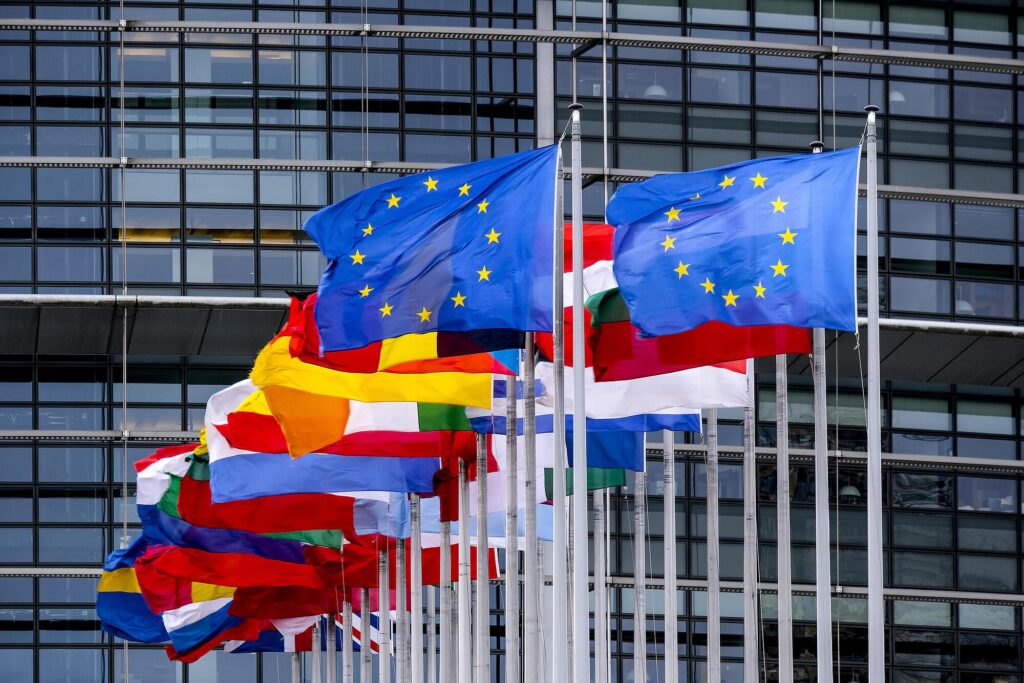Shifting Geopolitical Dynamics in Central Asia: The EU’s Growing Influence and Its Impact on Turkiye
As the geopolitical dynamics of Central Asia evolve, the European Union (EU) is increasingly focusing its efforts on this strategically significant region, enhancing its diplomatic and economic interactions. This shift presents a multifaceted challenge for Turkiye, which has historically regarded Central Asia as a crucial sphere of influence, intertwining its aspirations for regional leadership with broader goals of Turkic unity. With the EU actively engaging with Central Asian nations, Turkiye’s strategic positioning is being tested amid rising competition for influence and resources. As both Western powers and local actors strive to establish their presence through trade agreements, investments, and security collaborations, turkiye faces high stakes in navigating this changing geopolitical landscape. This article delves into how the EU’s outreach affects Turkiye’s role in Central Asia and what strategic adjustments might potentially be necessary in this dynamic region.
The EU’s Engagement with Central Asia: Effects on Regional Geopolitics
The increasing involvement of the European Union in Central Asia signifies a notable change in regional geopolitics that brings both opportunities and challenges for Turkiye. The EU’s interest in tapping into the natural resources of Central Asian countries while promoting trade routes and cultural exchanges indicates a strategic shift that could possibly alter power balances within the area. As Europe aims to diversify its energy imports away from Russian gas dependency, nations like Kazakhstan and Turkmenistan—rich in oil and natural gas reserves—become pivotal players.
This heightened focus from the EU carries substantial implications for Turkiye, which has traditionally viewed itself as an influential actor within this region due to deep-rooted cultural connections. However, an increased presence by the EU may threaten to undermine Turkey’s strategic depth; thus Ankara must adapt its policies to sustain relevance amidst these changes. Several key factors are contributing to this evolving scenario:
- Energy Security: The EU’s engagement may incite competitive tensions over energy supply routes.
- Geopolitical Alliances: As new partnerships form within Europe, Turkey might need to reassess its alliances to avoid regional marginalization.
- Infrastructure Progress: Increased funding from the EU could reshape trade patterns that diminish Turkey’s role as a transit hub.
Turkiye’s Strategic Position at Risk: Evaluating New Geoeconomic Challenges
The emergence of Central Asia as a focal point for global powers poses challenges to Turkey’s conventional influence within these territories.The renewed interest from the European Union is reshaping long-standing alliances and economic partnerships that have historically favored Ankara.This convergence between Western interests and local ambitions threatens Turkey’s established role as an intermediary between East and West. This situation underscores growing vulnerabilities as Ankara strives to maintain significance while maneuvering through an increasingly intricate geopolitical surroundings where resource acquisition, trade routes access, and alliance formations become critical factors influencing foreign policy decisions.
The ramifications of increased EU involvement can significantly impact Turkey’s political landscape alongside its economy. With intensified competition over influence emerging across various sectors such asenergy security,trade flows,anddiplomatic relations, several challenges arise:
- Crisis Over Energy Dependency:The push by Europe towards diversifying energy sources could jeopardize Turkey’s status as a key transit hub.
- Diminished Infrastructure Initiatives:Evolving projects backed by European investments might overshadow Turkish-led initiatives aimed at enhancing connectivity.
- Pivotal Shifts In Political Alignments: strong>A changing political climate across Central Asian states can affect longstanding turkish alliances negatively. li >
ul >This complex scenario necessitates thorough responses from Ankara involving critical evaluations regarding engagement strategies throughout these regions.To illustrate these shifting dynamics further,a table below outlines current influences shaping relationships across various countries withinCentralAsia : p >
Country Current Influencers Turkey ’s Role Kazakhstan China , Russia Diminishing but still relevant regarding commerce td > Uzbekistan td > Russia ,EU td > Heightened rivalry Tajikistan td > Limited yet strategically cooperative tr > If developments continue along their current trajectory,Türkiye must adeptly navigate emerging complexities while reinforcing national interests against external pressures .< / p >
Strategizing Foreign Policy: Recommendations for Türkiye Amidst Change
Türkiye finds itself at crossroads influenced heavily by escalating interest shown bytheEuropeanUnioninCentralAsia;thus it becomes imperativeforpolicymakers toreassessforeignrelationsapproaches.Inthiscontext,adynamically multifaceted strategy will be essential .This approach should prioritize strengthening bilateral tieswithCentralAsianstatesleveraginghistoricalculturalconnectionswhileenhancingeconomicpartnerships.Keyrecommendationsinclude : p >
- < strong />InvestinginInfrastructure:< / strong />Encouragejointventuresintransportationandenergyprojectstoimproveconnectivityandtradechannels.< / li />
- < strong />EngagingSoftPowerDiplomacy:< / strong />Utilizeculturalinitiativeseducationalprogramsandhistoricaltiesforlong-termrelationshipbuilding.< / li />
- < strong />CreatingStrategicAlliances:< / strong />FostercooperationwithotherregionalplayersbalancingtheimpactofbothEUandChina.< / li />
- < strong />EnhancingDefenseCooperation:< / strong />< Establishdefenseagreementsjointmilitaryexercisesreinforcingsecurityties.< / li />
To effectively implementtheseinitiatives,Türkiyemustalsoaddressinternalexternalchallenges.MaintainingacoherentnarrativehighlightingitsroleasabridgebetweenEastWestiscritical.IntentionalfocusonareasoutlinedbelowmayenhanceTürkiye’ s leverage:
< tr>< th >< str ong >Challenge</ str ong > th>< th >< str ong >RecommendedAction</ str ong & gt; th> tr>
< tbody>< tr>< td >< str ong & gt; < br/>&# xA0;& lt;/ tr& gt;
& lt;< td >& lt;< str ong & gt; GeopoliticalRivalry EconomicInstability PublicPerception DevelopcollaborativediplomacywithbothWesternEasternpowers. Pursuediversifiedtradeagreementstoalleviateeconomicrisks. Enhancecommunicationstrategiesfosteringtrustengagement. < / tbody> Final Thoughts on Evolving Dynamics
As engagement intensifies betweentheEuropeanUnionandCentralAsia,thegeostrategiclandscapeoftheregionisundergoingtransformativechanges.Türkiyewasonceviewedasacentralplayerwithinthisgeopoliticalframeworkbutnowfacesanarrayofcomplexchallengespotentiallyreshapingitsinfluence.WithEuropefocusedonenergysource diversificationandeconomicintegration,Türkiyemustskillfullynavigateacomplexenvironmentwherehistoricalrelationshipsambitionsarebeingputtothetest.ThechangingdynamicsnotonlyunderscoretherelevanceofregionalcooperationbutalsotheurgencyforAnkarato reevaluateitsstrategiesduringaneracharacterizedbyshiftingalliancescompetinginterests.Asglobalpowerbalancescontinueevolve,thefutureoftheTurkishpresenceinCentralAsiaremaindefinitelyuncertaininvitingcloserscrutinyontheimplicationsforregionalstabilityinternationalrelations.
